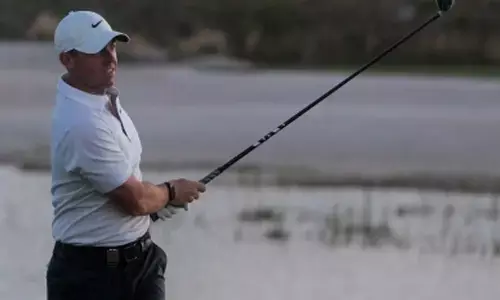Birds, lovers miss nesting

People affected by the super cyclone Hudhud are slowly coming to terms with the minimum help rendered by the State government and the voluntary organisations.
Visakhapatnam: People affected by the super cyclone Hudhud are slowly coming to terms with the minimum help rendered by the State government and the voluntary organisations. But it is the birds and the lovers who have been missing a private place since the cyclone devastated the green cover in the city.
Known as the lover’s paradise, the city used to be an ideal place for romantic couples with vast stretches of beach covered with trees, the ecological park of Kambhalakonda, Indira Gandi Zollogical Park, Thotlakonda and VUDA Park on the beach road.
Just a month ago, young couples were seen zooming past towards Bhimili beach road and other secluded places. But the cyclone has changed the entire scenario. “Now we find only families with children visiting Kambalakonda. With the green cover gone, we hardly find any young couples,” said Vasupalle Ramana, the security guard at the eco-park.
Similarly, the birds from different parts of the world, which made Vizag their nesting place, have now changed their course.
Experts said more than 100 species of birds made their home in Kambalakonda and now they are looking for safer places. Prof DE Babu, head of the zoology department at Andhra University, said, "the Hudhud had driven away all the birds from the region. With not many trees left, it has become difficult for the birds to even get food. While common species like crows will adapt to the changes, species like owls, eagles and kites which were easily found in the city had disappeared from the horizon." He said VUDA Park, Kambalakonda , Kapulauppada lake, Mudsarlova, Gambheeram and Thatipudi reservoirs have been bird watchers' paradise. However, with Hudhud wrecking havoc in all these areas, not many birds are expected to stay back.
Local people might miss White Bellied Sea Eagles, Barn Owl, Pariah Kites, Common Kestrel, Osprey, Drongo, Egret, and Hornet Owl among other birds. Prof Bharatlakshmi said the microbats (small sized bats) and other small tree dwelling mammals and reptiles have disappeared. With the heavy loss of canopy cover in the Kamabalakonda , there is chance that cases of man-animal conflict might also come to fore as big mammals might foray out of the sanctuary in search of shade, protection or food.”














